
Katie Bentley
The Francis Crick Institute, King’s College London
UK
EMBO Practical Course
It is a “hands-on” course with 60% of the time devoted to students working on laptops performing exercises designed to give a practical familiarity with different types of computational modelling.
The course focuses on the dynamics of multicellular systems- from embryos to organoids, covering both the molecular side (how gene regulatory networks perform pattern formation) and also the mechanical side in 2D and 3D (how the movements and activities of many cells together leads to tissue-level morphogenesis and organisation).
Attendees will also work through the week in small groups on group projects, which will be presented on the last day to the whole class.
Each day will end with a keynote lecture by a prominent researcher in the field, putting the topic of the day into context through an example of relevant biological research.
The week is organised to maximise networking between the students and the teachers and speakers.
This practical course is aimed at experimental biologists, including those with little or no experience in computer modelling, to become confident and familiar with these approaches and tools. We encourage applicants interested in exploring whether their current projects might benefit from computational modelling.

The Francis Crick Institute, King’s College London
UK
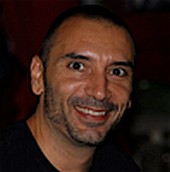
Institute for Integrative Systems Biology (I2SysBio)
CSIC-UV
Spain
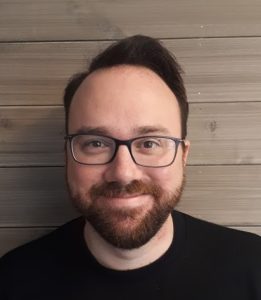
Sheffield University
UK

Pompeu Fabra University
Spain
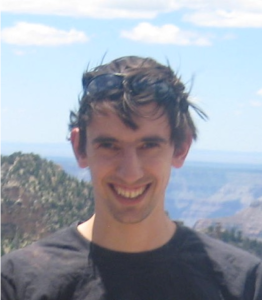
Aberdeen University
UK

University College London
UK
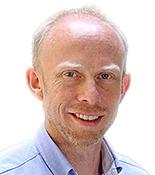
EMBL Barcelona
Spain
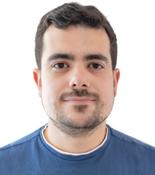
EMBL Barcelona
Spain

Oxford University
UK

The Francis Crick Institute, Kings College London
UK

EMBL Barcelona
Spain

EMBL Barcelona
Spain

Course and Conference Team Lead
EMBL Heidelberg

Operations Officer
EMBL Barcelona, Spain
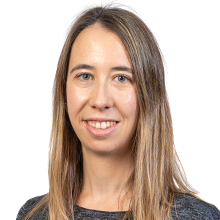
Collaboratorium Project Manager
EMBL Barcelona, Spain
Got something to say? Tweet it! #EMBOMulticellModelling
| Time (Europe/Berlin) | Speaker | Location |
|---|---|---|
| 18:00 – 19:00 | Course Overview and Meet and Greet | H10 Marina |
| 19:30 – 21:30 | Dinner | H10 Marina |
| Time (Europe/Berlin) | Speaker | Location |
|---|---|---|
| 08:30 – 09:00 | Welcome to Collaboratorium | Barcelona Collaboratorium |
| Topic for Day 2 – Agent based modelling Primary trainer: Katie Bentley | Collaboratorium Edifici Pasqual Maragall, 2nd Floor | |
| 09:00 – 10:45 | Lecture 1 & Practical 1: Introduction to designing ABMS | Seminar Room (Aula de Seminari) |
| 10:45 – 11:15 | Coffee break | Breakout Area |
| 11:15 – 13:00 | Lecture & Practical 2 “calibrating, validating and analysing ABMs” | Seminar Room (Aula de Seminari) |
| 13:00 – 14:00 | Lunch break | UPF Canteen |
| 14:00 – 15:45 | Lecture & Practical 3 “advanced concepts” | Seminar Room (Aula de Seminari) |
| 15:45 – 16:15 | Coffee break | Breakout Area |
| 16:15 – 19:00 | Practical: Group Project Session 1) ABM project 2) Vertex model project 3) Pattern Formation in tissues 4) Patterning on moving cells 5) FEM project | 1 – Aula Seminari 2 – Sala de Reunions 1 3 – Sala de Reunions 2 4 – Break Out Area 1 (right wing) 5- Break Out Area 2 (left wing) |
| 19:00 – 20:00 | Keynote lecture 1: Using Agent-based Models to explain stripe formation in zebrafish Alexandria Volkening – Purdue University, USA **this talk is remote** | |
| 20:30 – 22:00 | Dinner at Flax & Kale |
| Time (Europe/Berlin) | Speaker | Location |
|---|---|---|
| Topic for Day 3 – Vertex Models. Primary trainer: Alex Fletcher | ||
| 09:00 – 10:45 | Lecture & Practical 1 “Basics” | Seminar Room (Aula de Seminari) |
| 10:45 – 11:15 | Coffee break | Breakout Area |
| 11:15 – 13:00 | Lecture & Practical 2 “Morphogenesis” | Seminar Room (Aula de Seminari) |
| 13:00 – 14:00 | Lunch break | UPF Canteen |
| 14:00 – 15:45 | Lecture & Practical 3 “Combining molecules with mechanics” | Seminar Room (Aula de Seminari) |
| 15:45 – 16:15 | Coffee break | Breakout Area |
| 16:15 – 19:00 | Practical: Group Project Session 1) ABM project 2) Vertex model project 3) Pattern Formation in tissues 4) Patterning on moving cells 5) FEM project | 1 – Aula Seminari 2 – Sala de Reunions 1 3 – Sala de Reunions 2 4 – Break Out Area 1 (right wing) 5- Break Out Area 2 (left wing) |
| 19:00 – 20:00 | Keynote lecture 2: Vertex modelling to explain epithelial development Javier Buceta – Alicante University, Spain | Seminar Room (Aula de Seminari) |
| 20:00 – 22:30 | Dinner at Café Menssana |
| Time (Europe/Berlin) | Speaker | Location |
|---|---|---|
| Topic for Day 4 – Pattern Formation Primary trainer: James Sharpe | ||
| 09:00 – 10:45 | Lecture & Practical 1 – Introduction to molecular patterning and the LimbNET tool | Seminar Room (Aula de Seminari) |
| 10:45 – 11:15 | Coffee break | Breakout Area |
| 11:15 – 13:00 | Lecture & Practical 2 – Morphogen gradients and downstream targets | Seminar Room (Aula de Seminari) |
| 13:00 – 14:00 | Lunch | UPF Canteen |
| 14:00 – 14:45 | Lecture & Practical 3 – Regionalisation in a 2D domain | Seminar Room (Aula de Seminari) |
| 14:45 – 15:45 | Lecture & Practical 4 – Periodic patterns from reaction-diffusion circuits | Seminar Room (Aula de Seminari) |
| 15:45 – 16:15 | Coffee break | Breakout Area |
| 16:15 – 19:00 | Networking & Flash talks | Seminar Room (Aula de Seminari) |
| 19:00 – 20:00 | Keynote lecture 3: Title to be confirmed Tom Hiscock – Aberdeen University (UK) | Seminar Room (Aula de Seminari) |
| 20:00 | Free evening |
| Time (Europe/Berlin) | Speaker | Location |
|---|---|---|
| Topic for Day 5 – GRN Dynamics and cellular movements Primary trainer: Berta Verd | ||
| 09:00 – 10:45 | Lecture & Practical 1 – Exploring the relationship between network topology, network parameters, phase space geometry, initial conditions and expression dynamics | Seminar Room (Aula de Seminari) |
| 10:45 – 11:15 | Coffee break | Breakout Area |
| 11:15 – 13:00 | Lecture & Practical 2 – Dynamical systems and simulating on moving cells | Seminar Room (Aula de Seminari) |
| 13:00 – 14:00 | Lunch | UPF Canteen |
| 14:00 – 15:45 | Lecture & Practical on VEDO – A python module for scientific analysis and visualization of 3D objects | Seminar Room (Aula de Seminari) |
| 14:45 – 15:45 | Practical 12: Practical exercises on laptops | Seminar Room (Aula de Seminari) |
| 15:45 – 16:15 | Coffee break | Breakout Area |
| 16:15 – 19:00 | Practical: Group Project Session 1) ABM project 2) Vertex model project 3) Pattern Formation in tissues 4) Patterning on moving cells 5) FEM project | 1 – Aula Seminari 2 – Sala de Reunions 1 3 – Sala de Reunions 2 4 – Break Out Area 1 (right wing) 5- Break Out Area 2 (left wing) |
| 19:00 – 20:00 | Informal discussions / networking | |
| 19:00 – 20:00 | Keynote lecture 4: Using FEM to model how non-uniform proliferation rates lead to controlled buckling and bending of wing disc epithlium Yanlan Mao – University College London, UK **This talk is virtual** | |
| 20:30 – 22:00 | Dinner at Ovella Negra |
| Time (Europe/Berlin) | Speaker | Location |
|---|---|---|
| Topic for Day 6 – Finite element models, Primary trainer: Alejandro Torres-Sánchez | ||
| 09:00 – 10:45 | Lecture & Practical 1 – Introduction to elasticity, viscosity and plasticity in cell and tissue mechanics | Seminar Room (Aula de Seminari) |
| 10:45 – 11:15 | Coffee break | Breakout Area |
| 11:15 – 13:00 | Lecture & Practical 2 – Continuum modelling. Stress, strain; stress rate, strain rate. – Finite element simulations. Indentation test. | Seminar Room (Aula de Seminari) |
| 13:00 – 14:00 | Lunch | UPF Canteen |
| 14:45 – 15:45 | Lecture & Practical 3 – Modelling activity: active gel models. – Finite element simulations of mechanical patterning. | Seminar Room (Aula de Seminari) |
| 15:45 – 16:15 | Coffee break | Breakout Area |
| 16:15 – 19:00 | Group Project Presentations | Seminar Room (Aula de Seminari) |
| 19:00 – 20:00 | Final wrap-up discussion | Seminar Room (Aula de Seminari) |
| 21:00 – 22:30 | Dinner & Farewell | H10 Marina |
The course is limited to 24 participants. For selection purposes, please note that your application will not be considered without a letter of motivation.
Registration fees include admission, course materials, COVID-19 safety measures, meals and coffee breaks. This EMBO course includes accommodation and transportation to and from the hotel to the venue.
| Academia | €450 |
| PhD Student | €450 |
| Industry | €1000 |
NO visa support letters will be issued until payment of the registration fee is confirmed.
The registration fee should be paid only after acceptance to the course. The results will be announced approximately 2-3 weeks after the application deadline.
After you have logged in and successfully registered, you will receive an email asking you to submit your motivation letter. Click on the link provided and enter your motivation letter in the text box provided. Alternatively you can submit your motivation letter by clicking on the link on the confirmation page directly after registering.
Instructions
Please note:
For detailed instructions, please watch our video on how to submit a course motivation letter.
For further information about registration and motivation letter submission please refer to the FAQ page.
Limited financial assistance is provided by EMBO in the form of both registration fee waivers and travel grants. Availability is limited to participants attending on-site events and will be indicated during the abstract or motivation letter submission process.
Your place in the meeting is only confirmed by paying the registration fee, which is mandatory even when receiving a fee waiver.
The fee waiver will cover the registration sum that you have paid to attend the course or conference.
The travel grant will cover the cost of travel (airfare, train, bus, taxi, accommodation, visa, and/or registration fees*) and is provided up to specified caps which are normally as follows:
– up to €500 for any participant travelling to an EMBO Practical Course or EMBO Workshop.
– up to €1000 for any participant working in Chile, India, Singapore or Taiwan travelling to an EMBO Practical Course or EMBO Workshop.
*Registration fees are only covered for EMBO Practical Courses or EMBO Workshops
The organisers may reduce the grant cap to accommodate more participants. Recipients will be notified of their travel cap amount when they are informed of the outcome of their application. Original receipts must be provided with your signature for all costs incurred within two months of completion of travel. Scanned copies cannot be accepted.
For EMBO Practical Course or EMBO Workshop participants with children, there is the possibility to apply for a childcare grant to offset child care costs incurred by participants or speakers when participating at a course or conference. Eligible costs include fees for a babysitter or child-care facility, travel costs for a caregiver, or travel costs for taking the child to the meeting etc. Please note that priority will be given to early-stage researchers. A maximum amount of 500 EUR can be awarded per participant applying for an EMBO Childcare Grant. In order to apply for this grant for EMBO Workshops, you must be registered by the abstract submission deadline.
Applies to selected courses only. Availability will be indicated during the abstract or motivation letter submission process.
This grant covers costs related to your attendance at the course (registration, travel and accommodation costs). The grant is restricted to PhD students and postdocs who conduct basic biomedical research.
Whether you are eligible to apply for a travel grant, depends on when you received your university entrance qualification (e.g. Abitur, A-Levels, High School Diploma, Final State Examination):
– for PhD and MD students, as well as graduates, the university entrance qualification must not have been obtained more than 11 years ago at the time of the envisaged course
– for postdocs, the university entrance qualification must not have been obtained more than 13 years ago at the time of the envisaged course
You may apply for financial assistance when submitting your motivation letter for courses, and abstract for conferences. In your application, you will be asked to answer questions regarding why your lab cannot fund your attendance and how your attendance will make a difference to your career. Application for financial support will not affect the outcome of your registration application.
For the Boehringer Ingelheim Fonds Travel Grant, there is a pre-application question during the motivation letter submission process, and if selected you will be requested to complete a standard form and documentation consisting of your travel expense estimation.
The scientific organisers will select the recipients of all financial assistance during the motivation letter or abstract selection process. Results will be announced approximately 6-8 weeks before the event start date, however for some events this may be delayed. Selection results do not impact your admission to the meeting. Selection is based on your current work or study location, the reasons for needing financial support and the impact this event will have on your career.
Costs will be reimbursed after the meeting only once a reimbursement form and original receipts (from travel costs) have been received.
See our list of external funding opportunities and information on attending a conference as an event reporter.
For further information about financial assistance please refer to the FAQ page.
Accommodation has been pre-booked for you at a nearby hotel for the default dates of 18 June to 23 June (6 nights). Please note that the course registration fee includes coverage of accommodation costs in twin rooms, including breakfast.
The hotel is just an 8 minute walk from the Collaboratorium space where the practical course will be held
Address: Hotel H10 Marina; Olympic Village, Av. del Bogatell, 64, 68, 08005 Barcelona, Spain
The EMBL eCampus learning platform will be used to collaborate, communicate and network with all of the course participants. All participants will receive information on how to join shortly before the course. We recommend using Chrome, Safari or Mozilla Firefox browsers for eCampus.
Sponsorship opportunities
We offer a variety of event sponsoring possibilities, with the flexibility to select a set sponsorship package or combine individual sponsorship options to suit your event budget. Discounts are available for companies sponsoring multiple events at EMBL Heidelberg. View other events, or contact sponsorship@embl.de for further information.
If you are interested in becoming a media partner of this event, please visit our media partnerships webpage.
EMBL wishes to warn sponsors of EMBL conferences and courses of fraudulent schemes purporting to offer sponsorship opportunities on behalf of EMBL or affiliated with EMBL officials. One current scam campaign of which we are aware is conducted using the name ‘Judy Eastman’ (judy@gopcontact.a2hosted.com) and entails approaches to sponsors offering sponsorship opportunities on EMBL’s behalf. Please be kindly advised that all relevant communication regarding sponsorship of EMBL conferences, symposia and courses is handled by EMBL directly and is sent from an official EMBL account. EMBL does not work with any external providers on sponsorship acquisition.
Please also note that:
Suspicious communications purportedly from, for or on behalf of EMBL should be reported to EMBL at the following email address sponsorship@embl.de.
Want to let others know you’re attending this event? Take a look at our shareable media and feel free to use them in your social media channels or presentations.

Date: 18 - 23 Jun 2023
Location: EMBL Barcelona
Deadline(s):
Application: Closed
Organisers:
Contact: Chris Stocks